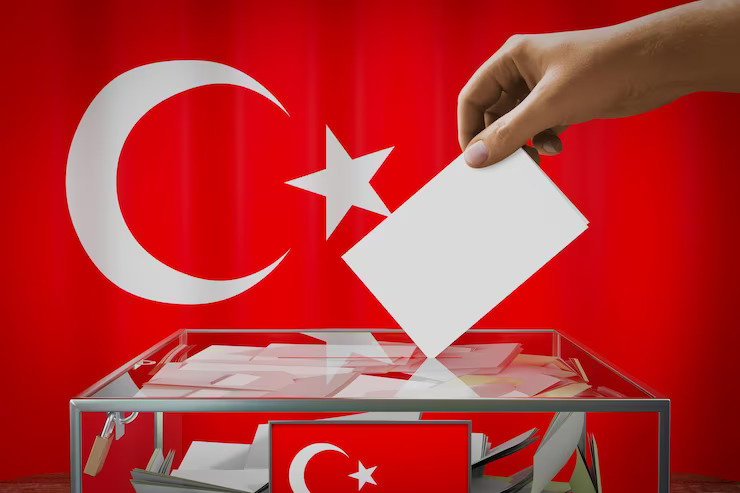The recent Turkish election, which took place on May 28, 2023, was one of the most significant political events in the country’s history. With President Recep Tayyip Erdogan emerging victorious against his main opponent Kemal Kilicdaroglu, the implications of his continued leadership on Turkey’s economy and the Turkish real estate sector are of great interest to investors and observers alike.
In this comprehensive analysis, we will delve into the factors that contributed to Erdogan’s election victory, the potential impact on Turkey’s economic growth and development, and the future outlook for the Turkish real estate market.
A Historic Election: Erdogan’s Narrow Victory
The election was marked by a close race between Erdogan and Kilicdaroglu, with the former narrowly winning 52% of the votes to the latter’s 48%. This tight contest demonstrated the strong support that both candidates received from various political parties and the Turkish public.
Erdogan’s victory in this election secured his position as Turkey’s longest-serving modern leader, having been in power since 2003. With the election results now confirmed, Erdogan will continue his ambitious mission to elevate Turkey to the status of a global superpower.
Factors Behind Erdogan’s Continuous Election Success
Erdogan’s 22-year rule has seen Turkey’s economy flourish under his leadership. The country’s gross domestic product (GDP) has experienced steady growth, and Turkey has climbed the global rankings to become the 11th largest economy in the world. When Erdogan first assumed office in 2002, Turkey was ranked 20th in terms of economic size.
Significant economic reforms and an export-oriented growth strategy have contributed to Turkey’s economic expansion. The country’s purchasing power per capita has also increased significantly, reaching over $41,000, with Istanbul’s figure surpassing $62,000.
Furthermore, Erdogan’s focus on infrastructure development, such as the construction of roads, ports, airports, and other essential projects, has attracted substantial foreign investment, amounting to $266 billion over the past 22 years. European investors alone account for $180 billion of this total.
Turkey’s Economic Outlook Following the Election
The International Monetary Fund (IMF) forecasts positive growth for Turkey’s economy in the coming years, with its GDP expected to increase from $1.029 trillion in 2023 to $1.33 trillion in 2028. However, it is essential to recognize that economic projections can be influenced by various factors, including domestic and global economic conditions, policy decisions, and unforeseen events.
In terms of inflation, experts anticipate a stabilization at around 20%, followed by a gradual decrease to 8%. Controlling inflation is critical for maintaining price stability and overall economic health in the long run.
Technological Transformation and Urban Development
One of the primary areas of focus for Turkey’s future growth is technology. Over the past two decades, the country has invested $150 billion in research and development (R&D), demonstrating a strong commitment to fostering innovation and technological advancement. These investments have generated new industries, advanced technologies, and enhanced human capital, all of which contribute to economic progress.
Moreover, Turkey is set to undergo significant urban transformation initiatives, particularly in the realm of post-earthquake reconstruction. These projects will play a crucial role in shaping the country’s future development and attracting further investment.
The Impact on Turkish Real Estate
The Turkish real estate market is expected to be influenced by Erdogan’s election victory and the country’s continued economic growth. Investors will likely monitor various factors, including political stability, fiscal policies, market conditions, and the regulatory environment, before making investment decisions.
Infrastructure Developments
As mentioned earlier, Erdogan’s focus on infrastructure development has been a significant factor in attracting foreign investment and promoting economic growth. With the continuation of his leadership, it is expected that further infrastructure projects will be implemented, improving transportation, logistics, and trade. This, in turn, could make the Turkish real estate market even more appealing to foreign investors.
Urban Transformation and Real Estate Opportunities
The upcoming urban transformation initiatives and post-earthquake reconstruction projects provide numerous opportunities for real estate investors. As cities are modernized and rebuilt, there is considerable potential for investment in new properties, both residential and commercial properties.
Turkey’s Commitment to Technological Advancement
The country’s commitment to technological advancement, demonstrated by its significant investments in R&D, will likely have a positive impact on the real estate sector. As new industries emerge and existing ones thrive, the demand for commercial and residential properties is expected to increase.
Conclusion
The recent Turkish election has undoubtedly shaped the country’s future trajectory. With Erdogan continuing his leadership, the next five years will see Turkey focus on infrastructure development, technological advancement, and urban transformation. These efforts are expected to promote economic growth and investment, with the Turkish real estate sector poised to benefit from these developments.
Investors and observers should continue to monitor the political and economic landscape in Turkey, as well as the progress and implementation of its various initiatives. By doing so, they can make informed decisions and capitalize on the opportunities that the Turkish real estate market presents in the coming years.





